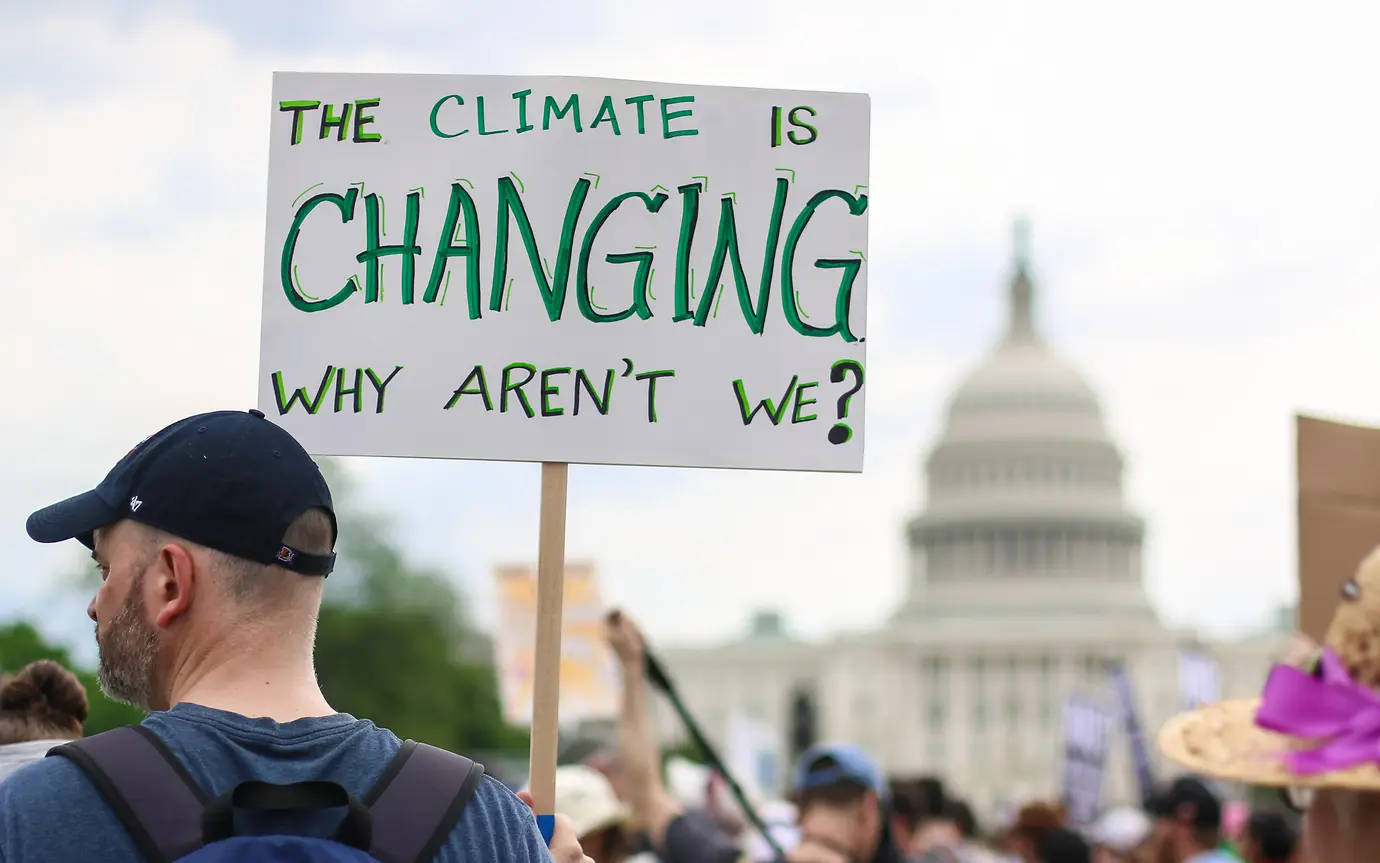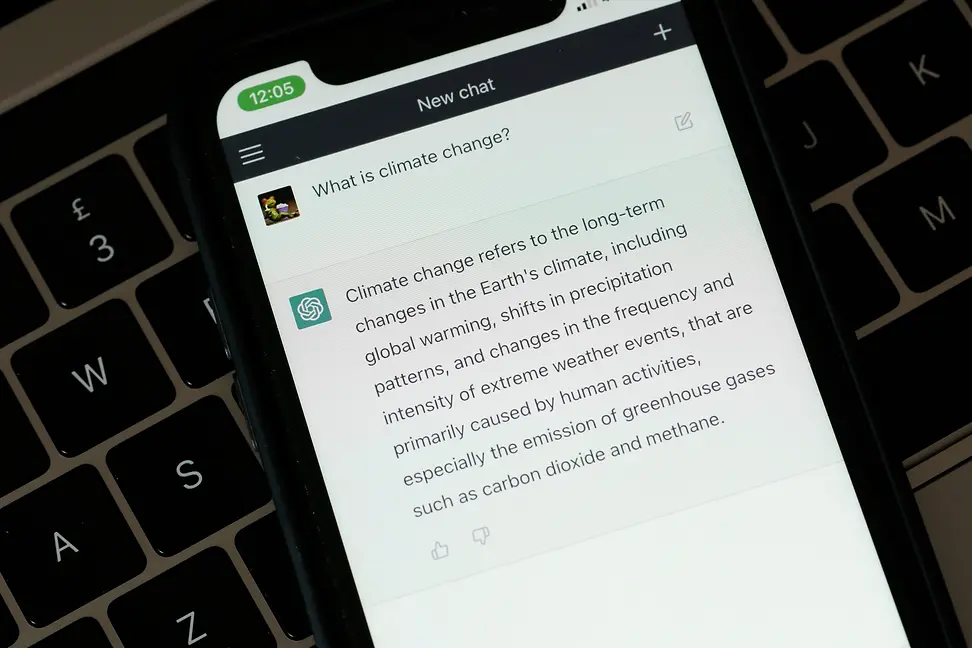
We humans have come to be the most dominant species in our planet’s history. Through our evolution, we have been able to develop technologies and uncover significant bodies of science that have enabled us to communicate better and protect ourselves from the threats around us. But something went wrong in our story, so why is that?
We are an incredibly resilient and intelligent species, but even humans have blind spots in what our brain is conditioned to process and handle. When it comes to risks, we have an innate ability to sniff out trouble, however, our fight or flight system mostly works with the here and now - that is, immediate risks we can see in front of us. This survival instinct has become incredibly helpful over time and is characterised by physical responses such as an increased heart rate, anxiety, and increased perspiration to prepare ourselves to jump into action.
So what happens when the threat is not imminent, but at some point in the future?
Climate change action is perhaps one of the best examples of how we react to the risks around us. For many decades scientists have pointed out that human induced climate change is real and poses a significant threat to our long-term survival and the health of our planet.
So as a rational and intelligent species, why did we not jump into action to collectively manage and address these risks when they first came to light? Well quite simply, for most, it was perceived as being too distant and too intangible for our fight or flight instincts to kick in and cause us to take real action. We are of course making great strides and progress, but we must work towards systemic system-based change in our economy.
Even as the growing body of evidence causes the societal consensus to move towards acknowledging the immediate and real threats of climate change, dealing with the body's natural response can be tolerated for short periods of time, but detrimental in its own right over a lifetime. For many, the overwhelming nature of these risks can lead to a counterintuitive response, which is to supress such feelings by thinking about anything but the risks posed by climate change. It quickly becomes apparent why so many generations of leading scientists have been unable to generate a systemic call to action – we are not programmed to deal with risks of such scale and duration.
Life can be characterised by a series of managed risks, with risk taking inherently important to survival, and this is very much the case today, but today’s risks are different. Once upon a time it was staving off predators, while today it is keeping the lights on in our homes and reaping greater economic benefits to enable us to live better lives. Today’s global economy was built prior to our understanding of the long-term implications of our economic activities. To put it another way, the foundations of capitalism were built, not on the premise of science or resilience, but on immediate satisfaction and economic profits. This has largely continued ever since and has been accelerated through various industrial revolutions. The issues of such a system are now being felt daily with extreme climate conditions becoming a regular occurrence and the effects are eroding significant economic value every year.
We are therefore required to balance climate risks, which will occur gradually over time, with the immediate benefits of consumption without a fundamental understanding of the embedded risks relating to our consumption. This has led us down a path of unconscious consumption, where we make purchases without full awareness, including awareness of the impact on the environment and society. Increased consciousness over recent times has undoubtedly been driven in part by some of these long-term risks now taking effect.
The internet and its younger, brainier sibling, Artificial Intelligence (AI), have enabled us to access and disseminate exponential amounts of information around the world and has led us down a path of significant innovation and development but within this, it has become increasingly difficult to separate fact from fiction. In the World Economic Forums most recent global risk survey, which surveys professionals and prominent institutions around the world on the greatest short-and-long-term economic risks, found that misinformation and disinformation is one of the biggest issues we now face.
Numerous psychology studies have shown that we are incredibly willing to believe false information which provides us with an attractive narrative, either to affirm our views or help us dismiss inconvenient long-term risks which weigh on our minds. Even though we now have scientific consensus on human induced climate change, the existence of more appealing narratives in the short term (such as the need for significant expansion of fossil fuel industries to keep energy costs low), real or not, make it incredibly difficult to remain engaged with long term risks, even if they are manifesting themselves today.
Despite the risks posed by the proliferation of false information, recent studies from researchers at the University of Wisconsin, highlighted by Katherine Hayhoe, a leading climate scientist, has shown that engaging with AI chatbots on the topic of climate change can help shift people's views towards scientific consensus. AI has been touted as a revolution which could significantly improve our productivity but is likely to have wider impacts if people can source more information based not on attractiveness of narratives, but on unbiased, factual information. This could go a long way in better conditioning us to engage more positively with climate action.

All this is not to say that climate risks are something we are conditioned not to care about, it is quite the opposite. The problem we face is that mobilising a response today to a threat which is often defined as one of tomorrow is a hurdle we must actively overcome and understand what we can do. This is mainly because the issue of projecting these risks perpetually into the future disguises the fact that they are already here. The World Economic Forum has estimated that climate related events cost $2.8 trillion between 2000-2019. That is greater than Italy’s GDP of $2.28 trillion according to the IMF!
One of the most important concepts in investing is the power of compounding, where we focus on the benefit of incremental earnings being reinvested over time to deliver more exponential progress in the long term. One of the key elements of generating attractive compounded returns is to start early, even if it is with small amounts initially.
To drive systemic change, we need to apply the theory of compounding to climate action, start small and make incremental changes which collectively amount to significant collective action which builds over time. These changes will vary depending on each individual, company or country and can range from investing savings into sustainable companies, switching to green electricity tariffs or taking your own bags to the supermarket (think small!). The benefit of centuries of innovation is that we have an abundance of opportunities to shift to more sustainable and conscious consumption behaviours.
The final and most critical way for us to mobilise our instincts is to lean on one of our greatest strengths, Intellectual curiosity. Our collective and individual hunger for knowledge, innovation and quality of life improvements has enabled us to innovate climate conscious products and services which can be found everywhere around us but only through continuous learning and intellectual curiosity can we understand the risks we pose ourselves through unconscious consumption.
We have great hope for the future, both through investments aligned with sustainable development and climate action but also for the broader economy and society through a more conscious approach to capitalism which scientists and economists alike believe can improve long-term resilience of the global economy. However, we must endeavour to rationalise what we see in the newspapers and on social media, utilise our critical thinking and leverage the power of compounding in our day-to-day lives. After all, Rome wasn’t built in a day.
This communication is provided for information purposes only. The information presented herein provides a general update on market conditions and is not intended and should not be construed as an offer, invitation, solicitation or recommendation to buy or sell any specific investment or participate in any investment (or other) strategy. The subject of the communication is not a regulated investment. Past performance is not an indication of future performance and the value of investments and the income derived from them may fluctuate and you may not receive back the amount you originally invest. Although this document has been prepared on the basis of information we believe to be reliable, LGT Wealth Management UK LLP gives no representation or warranty in relation to the accuracy or completeness of the information presented herein. The information presented herein does not provide sufficient information on which to make an informed investment decision. No liability is accepted whatsoever by LGT Wealth Management UK LLP, employees and associated companies for any direct or consequential loss arising from this document.
LGT Wealth Management UK LLP is authorised and regulated by the Financial Conduct Authority in the United Kingdom.